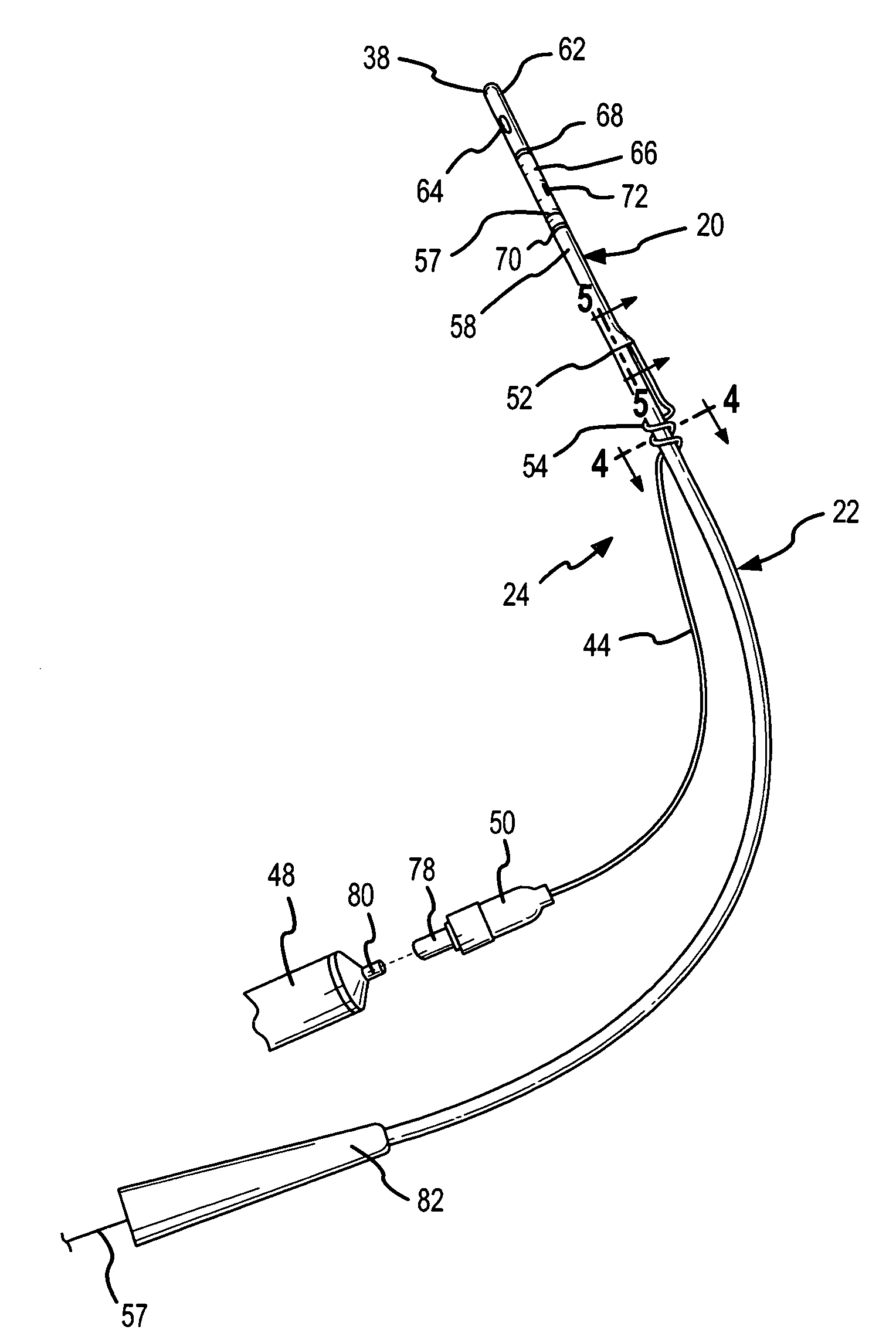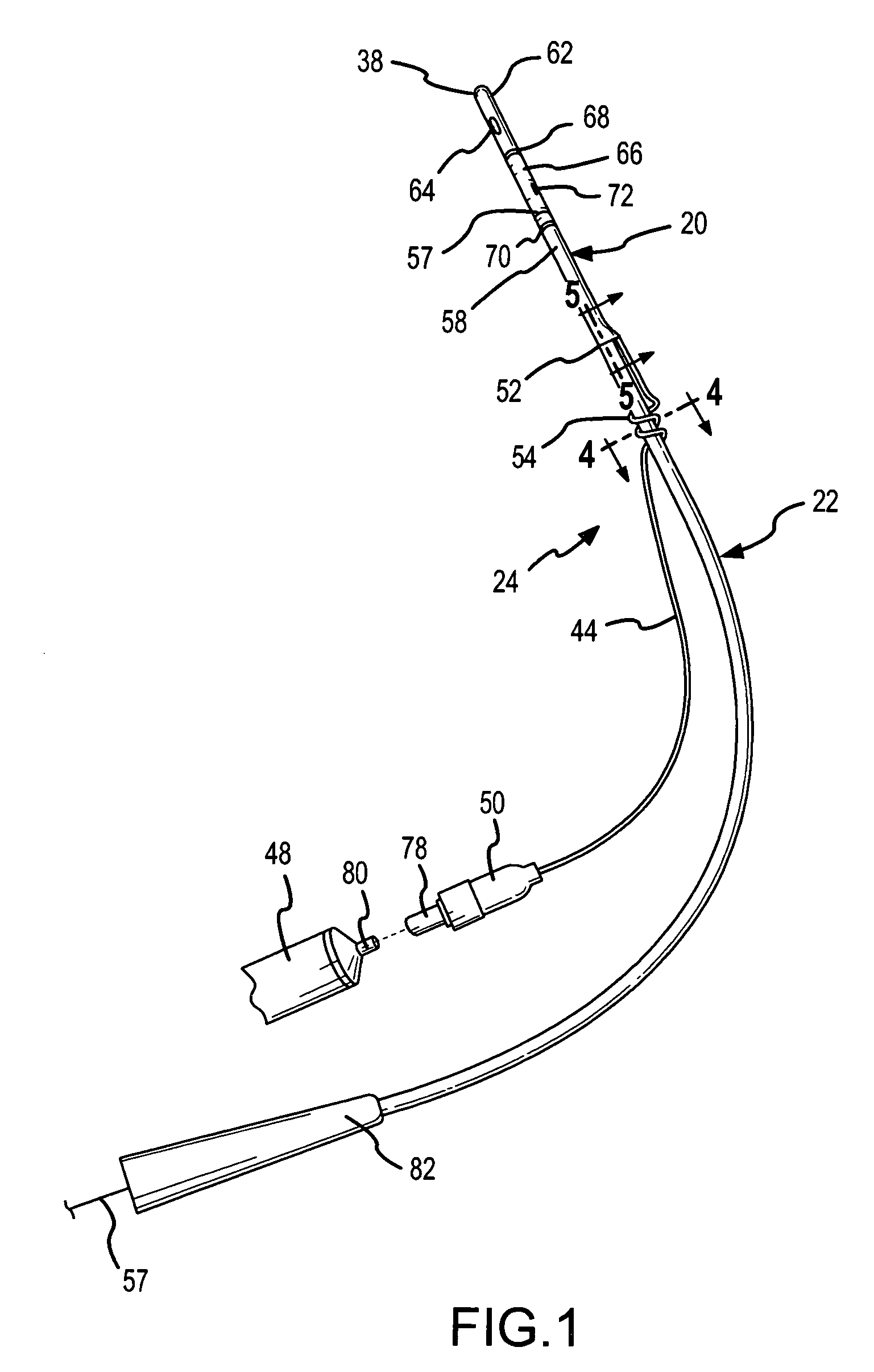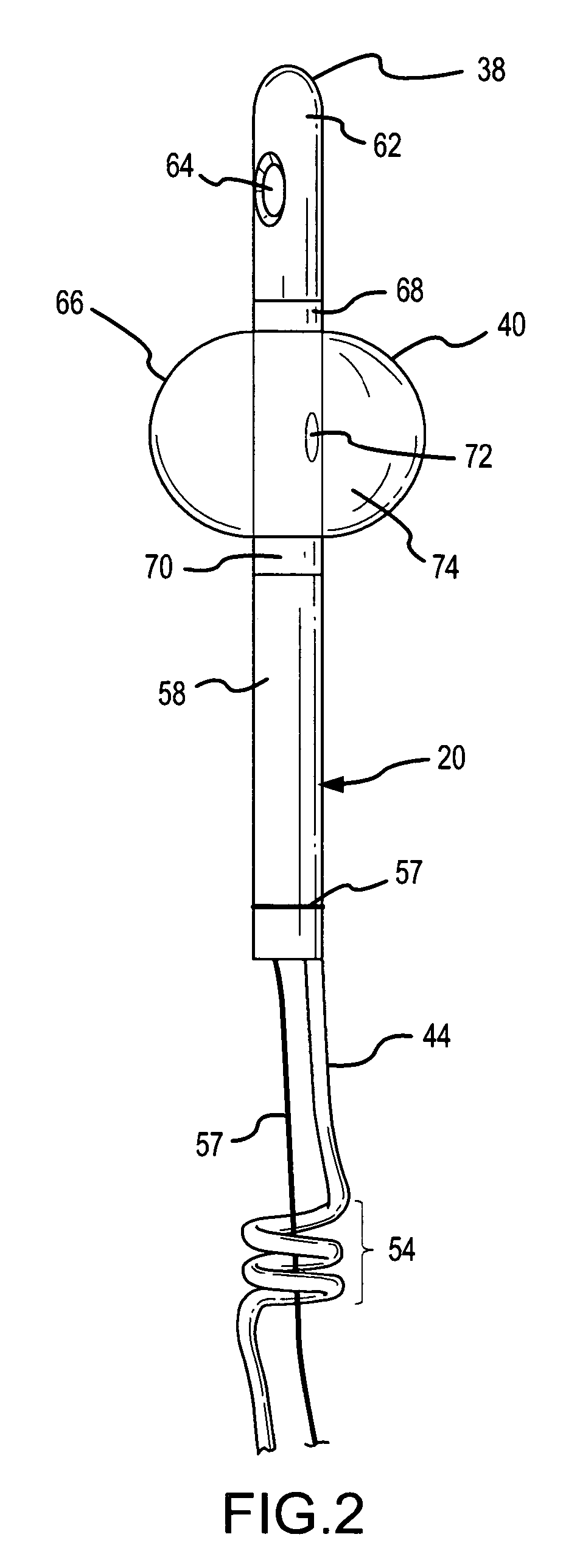Partial-length indwelling urinary catheter and method permitting selective urine discharge
a urinary catheter and partial-length technology, applied in the field of partial-length indwelling urinary catheters, can solve the problems of troublesome daily symptoms and effects of these diseases, difficult control and normal urine discharge, and considerable difficulties in discharging urin
- Summary
- Abstract
- Description
- Claims
- Application Information
AI Technical Summary
Benefits of technology
Problems solved by technology
Method used
Image
Examples
Embodiment Construction
[0043]One embodiment of a partial-length indwelling catheter 20 which incorporates the present invention is shown in FIG. 1. The indwelling catheter 20 is connected to an insertion tool 22 to form a catheter-tool assembly 24, which allows the catheter 20 to be inserted into a urinary tract of a human being, such as a urinary tract 26 of a male human shown in FIG. 6. Once inserted, the insertion tool 22 is disconnected or separated from the indwelling catheter 20 to leave the catheter 20 dwelling or remaining within the urinary tract, to extend through a prostatic urethra 28 within a prostate gland 30 of a male human being shown in FIGS. 6-9, 12 and 15. In its indwelling use position shown in FIG. 8, the catheter 20 conducts urine from a bladder 32 through the prostatic urethra 28 within the prostate gland 30 to a position slightly upstream of an external urinary sphincter muscle 34.
[0044]The indwelling catheter 20 is pushed into the urinary tract 26 with the insertion tool 22 until ...
PUM
 Login to View More
Login to View More Abstract
Description
Claims
Application Information
 Login to View More
Login to View More - R&D
- Intellectual Property
- Life Sciences
- Materials
- Tech Scout
- Unparalleled Data Quality
- Higher Quality Content
- 60% Fewer Hallucinations
Browse by: Latest US Patents, China's latest patents, Technical Efficacy Thesaurus, Application Domain, Technology Topic, Popular Technical Reports.
© 2025 PatSnap. All rights reserved.Legal|Privacy policy|Modern Slavery Act Transparency Statement|Sitemap|About US| Contact US: help@patsnap.com



